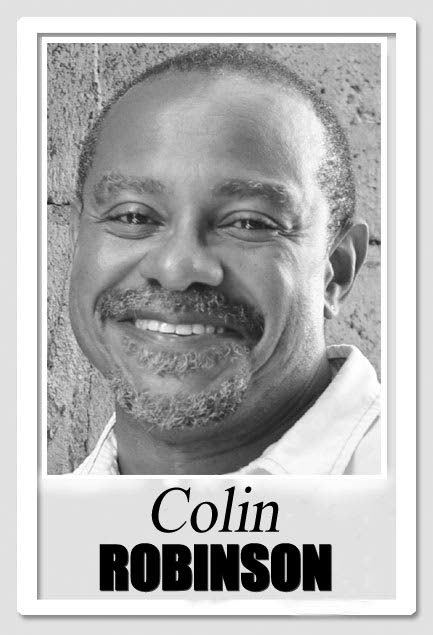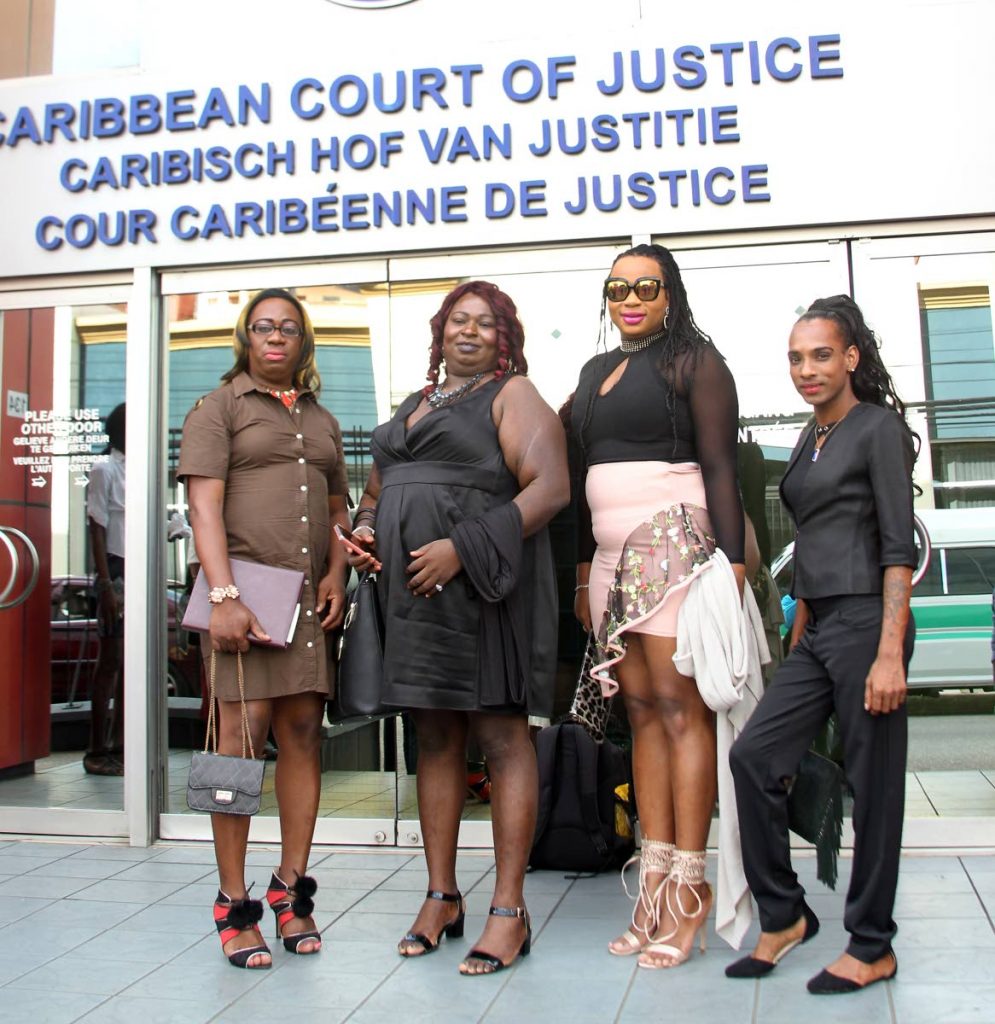The small-man court

It only just sank in with heaving tears how profound a transom of Caribbean history I had the luxury to stand under 10 am Tuesday in the Caribbean Court of Justice. A story three of us in the galleries (alongside two law teachers from the UWI team that crafted the case, and four media people) will recount from our rocking-chair dotage.
“There’s so much to celebrate about Caribbean justice today,” I wrote driving home, “about Caribbean lawyers, about Caribbean judges, about four pioneering trans women who have expanded justice for so many Caribbean people the law fails.” Still I didn’t understand how much.
McEwan was an enormous case brought by small people. The first constitutional challenge to Caribbean anti-LGBTI laws, it’s been overlooked in the international gaze. Its litigants weren’t the lightskinned, world-travelling, in-your-face gay male activists in the Orozco or Jones cases people want to film and make heroes. This wasn’t about sex. It was a case about a petty-offence arrest of four working class Black and Indian “crossdressers.” From Guyana.
But Tuesday’s judgement sweeps so far beyond Gulliver, Pheches, Angel and LilBella’s transgender identities that I found myself arguing, still in the courthouse, this wasn’t a victory for LGBTI people against anybody else.
I suspected the strange disappearance from the CCJ website of the judgement’s originally scheduled delivery date—days before voters in Antigua and Grenada were to decide on accession to the 13-year-old apex court—wasn’t coincidental. Why give folks another reason to vote no in an already politicised campaign full of misinformation? Case in point: Grenada Broadcast Service, reporting the eventual judgement, misattributed April’s TT sodomy judgement to the CCJ.
When both referenda rejected the CCJ by narrow majorities, many of us derided Eastern Caribbean voters’ colonial-mindedness and lack of cultural confidence: They’d probably never have voted for independence. Others blamed a lack of confidence in manifestly corrupt post-Independence institutions.

In remarkable contrast, the court’s clearly-worded main opinion (everyone should download and read) shows its incredible self-confidence in itself and its Caribbeanness. To say and do things about Caribbean justice I believe a Privy Council would never dare.
For the CCJ—and the advocates—McEwan wasn’t just an LGBTI case. The judgement locates the “crossdressing” offence within a suite of Caribbean “vagrancy laws” “passed in the post-emancipation period…to cope with the paradigm shift in the mode of production from slavery to free labour. The laws were designed to regulate and exercise control of both the ex-slave population and, in places like Guyana, the newly imported indentured labourers.…The laws…also regulated gender and religion.” They were law officers’ “go-to response against anyone who threatened…to move ‘out of place’ socially, culturally, politically, racially, sexually, economically, or spatially.” In both the June hearing and judgement the justices acknowledged how unfriendly justice systems lead unrepresented people like the litigants to plead guilty.
The judgement does several groundbreaking things. “Difference is as natural as breathing,” it opens breathtakingly. Despite difference in “Caribbean societies often leading to derision of, and sometimes violence against those who are different. It is for courts to afford the protection of the law to those who experience the brunt of such behaviour.”
The case’s legacy will be its treatment of “savings clauses” “included in independence constitutions for a limited purpose – that of securing an orderly transition from colonial rule to independence.” For years, the Privy Council has waffled and politicians dodged these emblems to Caribbean lack of self-confidence emblazoned on our constitutions, “protecting” us from the Constitution’s promise of rights. Building on a Barbados death-penalty case they decided the day before hearing this one, the Court reinforced a clear message: “The hallowed concept of constitutional supremacy is severely undermined by the notion that a court should be precluded from finding a pre-independence law…inconsistent with a fundamental human right. Simply put, the savings clause is at odds with the court’s constitutionally given power of judicial review.”
The CCJ also overruled the lower courts’ decisions on “affording standing to individuals and entities,” like NGOs, that have “a real and genuine interest in…legislation under challenge…[i]n constitutional proceedings.”
Court President Adrian Saunders, on television the day following the judgement, analysed the failed referenda: they were on the CCJ, but not about the CCJ. “If you have files that are lost…discourteous court staff…judgements taking a very long time…people on remand for years and years…courts in buildings that are broken down,” you don’t vote to put a shiny new attic on top the termite-ridden structure. Another famous experience small people have of Caribbean courts is the rebuke by Guyana Acting Chief Magistrate Melissa Robertson-Ogle (now Berbice land court judge) of McEwan et al from her bench, calling them confused and needing to “go to church and give their lives to Jesus Christ.” The CCJ rebuked that sort of “proselytising.”
I wish McEwan had been delivered before Antiguans, Barbudans and Grenadians voted. Maybe they would have read it fearfully the CCJ would give Caribbean LGBTI people humanity. But perhaps they would have heard the CCJ saying to Guyana’s lower courts: You cannot treat small people so.
McEwan isn’t a “transgender rights” case. It’s a ricocheting decision about justice for the Caribbean small-man, brought to him by four courageous transwomen. And a Caribbean court.


Comments
"The small-man court"